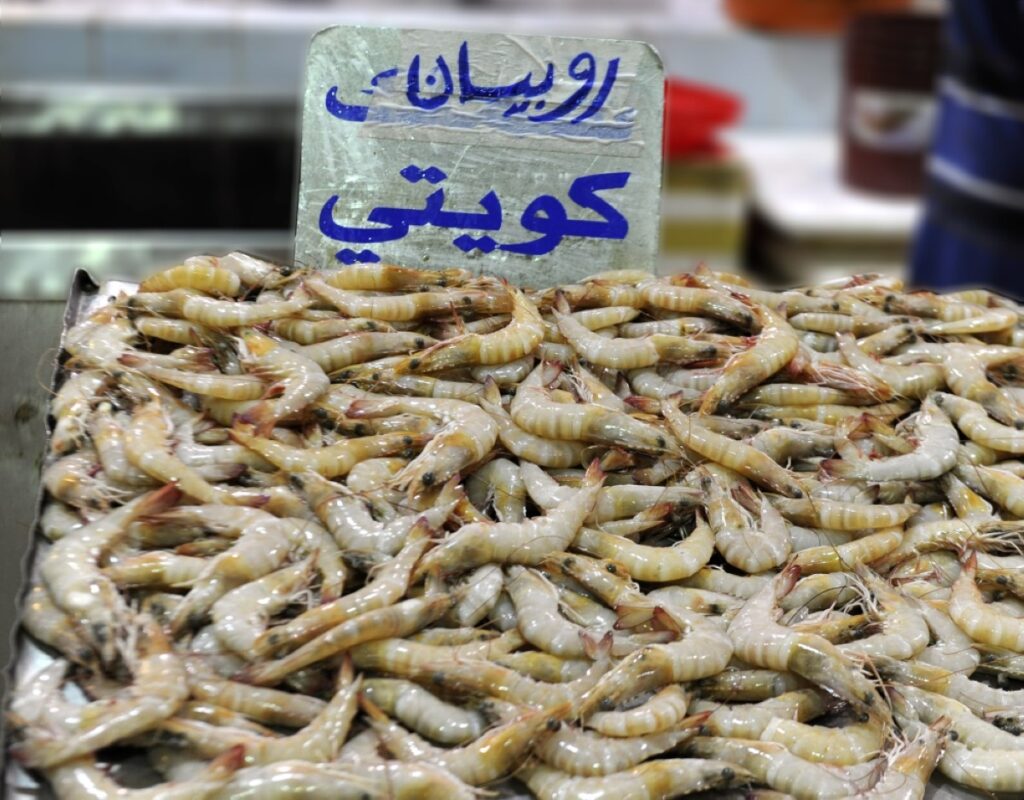KUWAIT: Local fish markets are seeing increased supplies of shrimp and pomfret (Zubaidi) as the seasonal fishing ban comes to an end, bringing relief to seafood lovers and easing prices.
Since August 1, fishermen have landed over 75 tons of Kuwaiti shrimp, alongside around 25 tons of local pomfret since mid-July, Abdullah Al-Sarheed, Chairman of the Kuwait Fishermen’s Union, told KTV news channel.
He said prices have already dropped, with shrimp baskets falling from 55 to 40–45 dinars. A shrimp basket typically weighs around 23 kg and must be sold without added ice, in line with Ministry of Commerce regulations.
He urged shoppers to buy directly from market auctions rather than stalls to get the freshest catch at the fairest price. “At the auction, you pay one set price without hidden costs, and you know the fish is local and fresh,” he said.
But Al-Sarheed argues that prices for mullet (maid) could fall further if the government lifts the July-to-September fishing ban inside Kuwait Bay and Kuwait’s territorial waters. During this period, fishermen are allowed to catch maid in Kuwait’s economic waters, 12 miles from the country’s coasts. The ban remains in force even after the main November-to-June seasonal closure ends.
The July-to-September ban has long been criticized by local fishermen as a main factor contributing to reduced maid supply in the Kuwaiti market.
“The designated areas aren’t yielding any catch right now,” he said. “However, there is plenty of mullet available, as we have shared videos before showing large amounts inside the bay.”
In a statement published this May, Al-Sarheed renewed fishermen’s demands to open Kuwait Bay for fishing.
“Mullet lives in shallow waters, and the fishing areas currently permitted by the Public Authority for Agriculture do not provide the quantities required by consumers,” he said. “This has led to the disappearance of mullet from market stalls for several years.”
The same month, the Public Environment Authority clarified that fishing bans in specific areas aim to protect and sustain fish stocks. The Authority referenced Article 100 of the Environmental Protection Law No. 42 of 2014, which prohibits fishing or disturbing wild marine life outside of designated seasons and locations. It also highlighted that Kuwait Bay serves as a crucial nursery for many marine larvae, making it vital for stock preservation.
In a 2023 opinion piece published in Al-Jarida, Dr Suleiman Al-Mutar, former head of marine agriculture at the Kuwait Institute for Scientific Research, argued that scientific studies show mullet are a fully local stock that can be managed sustainably without an outright ban. He said allowing fishing in Kuwait Bay during the summer — with catch limits and vessel quotas — would not harm the species.
For now, the ban remains, and fishermen are focusing on the seasonal bounty. With shrimp and Zubaidi abundantly available, Al-Sarheed encouraged people to stock up. “Fill your freezer now before prices rise again,” he advised.

